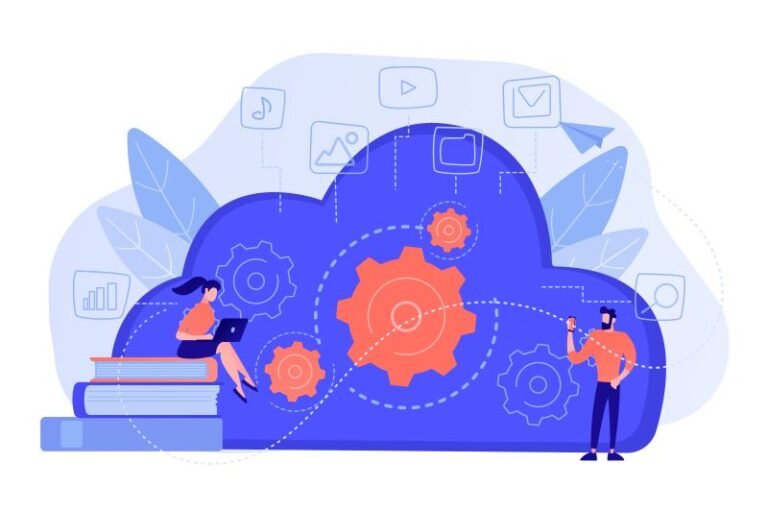What Are the Cost Considerations in Parking Space App Development
Parking has become an increasing challenge in modern cities due to growing populations and more vehicles on the road. Parking space finder apps have emerged as a smart solution, helping drivers find available spots quickly and efficiently. However, developing such an app is not a simple task—it involves a wide array of considerations, especially in terms of costs. This article will dive deep into the various factors that influence the cost of developing a parking space app and how these considerations compare to broader business mobile app development processes.
Market Research and Analysis
Before any code is written, the first cost to consider is related to market research and analysis. Developers need to analyze the target audience, competitors, and parking behaviors in the city or region where the app will be used.
Cost Considerations:
- User and Competitor Research: Conducting surveys and focus groups, analyzing competitors’ apps, and understanding user preferences require investment. This research ensures the app provides features that will genuinely solve parking problems for users.
- City-Specific Data: Each city has unique traffic patterns and parking challenges, so research costs will vary based on how complex the data collection and analysis are in a specific location.
Estimated Cost: $5,000 – $20,000 depending on the region and complexity of the market.
App Platform Selection
The next step in parking space app development is deciding which platforms to target. Should the app be built for Android, iOS, or both? The choice of platform influences the total development costs, as building for multiple platforms requires additional resources.
Cost Considerations:
- Single vs. Cross-Platform Development: Developing for both iOS and Android will increase costs due to the need for separate codebases or a cross-platform solution. However, cross-platform frameworks like Flutter or React Native can reduce costs by allowing developers to write code once for both platforms.
- Testing and Maintenance: Supporting multiple platforms means ongoing testing and maintenance costs to ensure that the app works smoothly across different devices.
Estimated Cost: $15,000 – $50,000, depending on the platform choice and app complexity.
Essential Features of a Parking Space Finder App
To create a successful parking space finder app, developers need to incorporate several essential features. These functionalities define the user experience and add complexity to the app’s backend.
Core Features and Their Costs:
- User Registration & Profiles: Secure user registration through email, phone, or social media integration. Developing a secure login system adds to the development cost.
- GPS Integration & Mapping: The core functionality of a parking app revolves around real-time location tracking and mapping. Integrating GPS and mapping services (like Google Maps) is one of the most crucial and expensive aspects of the app.
- Search & Filters: Users should be able to search for parking based on proximity, price, availability, and other filters. Developing intuitive search capabilities requires substantial time.
- Real-Time Data Updates: The app needs to provide real-time parking availability, including occupied, vacant, and reserved spots. Integrating this feature involves heavy reliance on sensors, IoT (Internet of Things), and third-party APIs.
- Payment Gateway Integration: Most parking apps allow users to pay for their spot via the app. Secure and seamless payment integration (such as PayPal, Stripe, or Google Pay) is essential and involves transaction fees and security measures like encryption.
- Notifications and Alerts: Push notifications inform users about available parking, payment confirmations, and time limits. Developing a notification system with customizable alerts adds to development costs.
- Reviews and Ratings: Users often leave reviews or rate parking spaces, and developing a reliable feedback system is an additional task for developers.
Estimated Cost: $50,000 – $150,000 for core features, depending on complexity.
Advanced Features to Enhance User Experience
Beyond basic functionality, incorporating advanced features can make a parking space finder app stand out. However, adding these features also increases the total development cost.
Advanced Features and Their Costs:
- Artificial Intelligence and Predictive Parking: AI can predict parking availability based on past data, helping users avoid peak times. Implementing AI requires sophisticated algorithms and machine learning models.
- Smart Parking Sensors: Integrating real-time data from smart parking sensors that detect whether a spot is occupied or vacant involves a significant IoT infrastructure investment.
- In-App Navigation: In-app navigation can guide users from their current location directly to an available parking space. This feature requires additional GPS development and integration with mapping APIs.
- Dynamic Pricing: The app can adjust parking prices based on demand, location, and time of day. Implementing dynamic pricing algorithms is a complex task that requires real-time data analysis.
- Reservation System: Enabling users to reserve parking spots in advance involves additional development for real-time booking, spot management, and availability synchronization.
Estimated Cost: $30,000 – $100,000 for advanced features, depending on the technology and scope.
Backend Development and Database Management
The backend of a parking app is crucial for handling data, managing user profiles, processing payments, and storing information about parking spaces. A well-designed backend ensures that the app operates smoothly and efficiently.
Cost Considerations:
- Database Management: Managing large volumes of real-time data, such as parking spot availability and user transactions, requires a reliable and scalable database. The choice between cloud services (AWS, Google Cloud, etc.) or on-premises solutions can significantly affect costs.
- Security Measures: Storing personal data, including payment information, necessitates robust encryption, secure servers, and frequent security updates, which adds to both development and ongoing maintenance costs.
- APIs and Third-Party Integrations: Parking apps often need to interact with third-party services, including mapping services, payment gateways, and IoT devices (like parking sensors). API integration and management add another layer of complexity to backend development.
Estimated Cost: $40,000 – $120,000 for backend development, depending on the scale and security requirements.
UI/UX Design
A parking space app needs to be user-friendly and intuitive. The user interface (UI) and user experience (UX) design play a critical role in ensuring that the app is easy to navigate.
Cost Considerations:
- Design Prototyping: Creating wireframes and prototypes for the app’s UI/UX involves collaboration between designers and developers to ensure the app meets user expectations.
- Responsive Design: The app must be designed to function well on various devices, including smartphones, tablets, and potentially smartwatches. Ensuring that the design is responsive across platforms adds to design costs.
- User Testing: Conducting A/B tests or beta tests to determine the usability of the design and making improvements based on user feedback is another important cost consideration.
Estimated Cost: $15,000 – $50,000, depending on the complexity of the design and the number of iterations.
Development Team Structure
The cost of hiring a development team can vary greatly depending on location, expertise, and the scope of the project. A full team typically includes project managers, front-end and back-end developers, UI/UX designers, and quality assurance (QA) testers.
Cost Considerations:
- In-House Development: Hiring an in-house team ensures better communication and project control but comes at a higher cost, especially if you’re hiring experts in multiple fields.
- Outsourcing: Outsourcing to a development agency or freelancers can reduce costs, but it may involve communication challenges or time zone differences.
- Hybrid Approach: Some companies opt for a hybrid approach, outsourcing specific parts of the project (like backend development) while keeping others (like design) in-house.
Estimated Cost: $100,000 – $300,000 depending on the size of the team and location.
Testing and Quality Assurance
Testing is essential to ensure that the parking space finder app is bug-free, responsive, and meets user needs. Skimping on testing can result in poor user experiences, leading to low adoption rates and negative reviews.
Cost Considerations:
- Automated vs. Manual Testing: While automated testing tools can speed up the process and reduce long-term costs, manual testing is still necessary for more complex functionalities like payment processing and real-time updates.
- Device Testing: The app must be tested across a variety of devices and operating systems to ensure compatibility and functionality. Testing on multiple devices adds to the development cost.
- Bug Fixes and Updates: Ongoing testing to fix bugs that arise after the app has been released is crucial for maintaining a smooth user experience.
Estimated Cost: $10,000 – $40,000 for initial testing, with ongoing costs for updates.
Maintenance and Updates
Once the app is launched, the costs don’t stop. Ongoing maintenance and regular updates are critical to ensure the app remains relevant, functional, and secure.
Cost Considerations:
- Bug Fixes and Security Patches: Developers need to continually monitor the app for bugs and security vulnerabilities, which requires a dedicated maintenance team.
- Feature Enhancements: As user needs change, adding new features and functionalities based on user feedback will require additional development costs.
- Server Costs: If the app relies on cloud servers, hosting fees will be a recurring expense that grows with the app’s user base.
Estimated Cost: $20,000 – $50,000 annually for maintenance, depending on the size of the app and number of updates.
Marketing and User Acquisition
An often-overlooked cost in parking space app development is the marketing budget. Even the best-designed app will struggle to gain traction without a well-planned marketing strategy.
Cost Considerations:
- Digital Marketing Campaigns: Search engine optimization (SEO), social media marketing, and pay-per-click (PPC) advertising are essential for increasing visibility.
- App Store Optimization (ASO): Ensuring that the app ranks well in the Apple App Store and Google Play Store is crucial for organic user acquisition.
- Partnerships and Collaborations: Collaborating with parking providers, city governments, or other businesses can help promote the app and expand its user base.
Estimated Cost: $10,000 – $100,000 for marketing, depending on the size of the campaign and target audience.
Conclusion
Developing a parking space finder app is an ambitious project with many moving parts, from technical challenges to user experience design. Business mobile app development for such an application involves significant investment across various stages, including research, platform development, feature integration, testing, and marketing. Costs can range from $100,000 to upwards of $500,000, depending on the scale and complexity of the app. By understanding the specific cost considerations and planning accordingly, businesses can create a successful parking app that solves real-world challenges while delivering a positive user experience.






